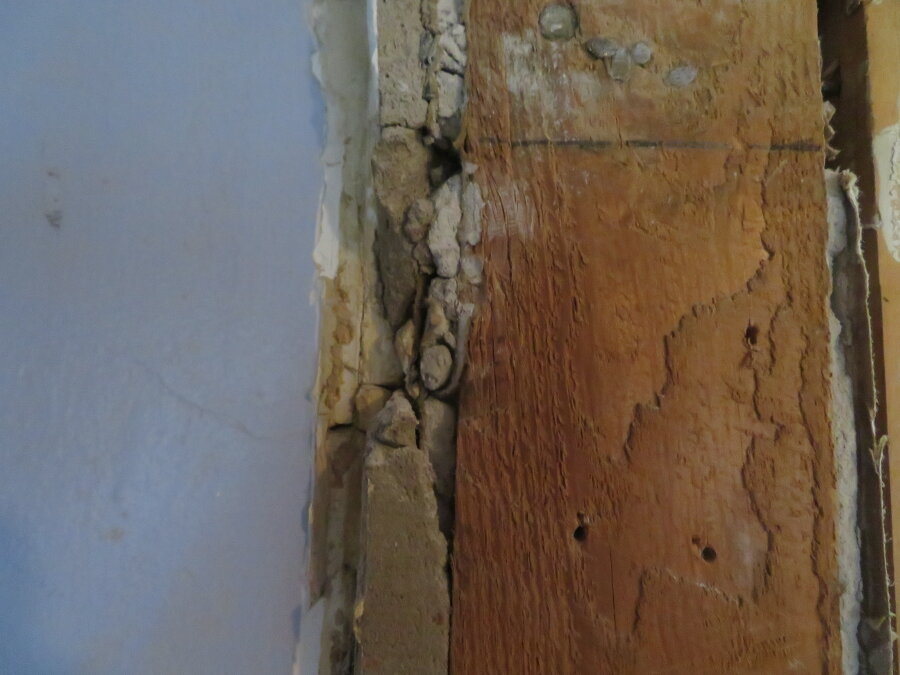Plan Your Home Renovation - 3 Simple Rules To Follow For The Best Result
When It Comes To How To Plan Your Home Renovation, Do Your Research
Before we talk about how to plan a home renovation for your new home- a quick cinematic aside to make a point.
“Seventy percent of all archeology is done in the library… research, reading” – Indiana Jones
Indiana Jones is more action-hero than pedantic professor, but moviegoers do get glimpses of Indiana’s academic drudgery, mostly as a comic contrast. In part, these hints to Indiana Jones the bookworm serve to help the audience understand how the fedora festooned, whip wielding protagonist is able to undertake his various adventures. Through his cinematic canon, Jones, at various times, shows a knowledge of no less than Greek, Latin, French, Spanish, German, Mandarin, and Hindi. He does have to call in an expert for ancient Hebrew in Raiders of the Lost Ark; what a slacker.
Indy’s claim – probably written to the satisfaction of a cloistered screenwriter – rings true, not just for Nazi-fighting academics, but for most undertakings that require a specific skill.

Virtuoso violinists practice for many hours a day for years. Dedicated doctors invest over a decade in study and training before practicing on their own. Renowned chefs often take on biologist levels of study to be able to combine the right ingredients for a signature dish. You get the point. The study and research necessary for success far exceed what is perceived in the moment.
The Perfect Home That Doesn't Exist [Yet]
No small number of the folks I’ve inspected for go into the home buying process looking for a house that they can make their own through renovation and remodeling –which is great. This is, obviously, a sentiment with which I empathize quite a bit. Remodeling is a great way to fuel the creative spirit and, if done well, can add considerable value to a home.
Walking through a house during a home inspection is an experience primed to fuel creative fervor. Standing amid swaths of the scariest wallpaper imaginable, the mind’s eye is ready to rework even the saddest spaces with new trim, colors, and furnishings. And, if we’re being honest, the thought of making a houseguest or two green with envy may cross your mind as well.
What About The Home Inspector?
During a home inspection, my job is to assess the condition of the house as it is on that day, mechanically and physically. Strictly speaking, home inspectors are not remodeling or design consultants.[1]
Nevertheless, I get questions all the time relating to the possibilities a house might hold.
I get it.
Why wouldn’t you ask the guy who spends his days carefully combing through houses about what can be done?
My response to renovation-related questions, however, has to be very careful. If I were to directly advise a buyer to undertake a given project, I would then take on whatever liability accompanies that project. For instance, what inspector in his or her right mind would recommend an amateur install an electrical sub-panel? The potential for peril is astronomical.
What You Won't See On TV
Think about it this way: What do you see people actually doing in commercials for national home improvement chains? Panting, gardening, and maybe tiling in a surprisingly spacious, bright, easily accessible area.
What won’t you ever see?
An enterprising individual wiring a distribution panel, a stalwart soul standing on a steep roof installing shingles, or a crafty consumer sweating copper pipe together.
Home improvement companies employ a cadre of corporate lawyers, each making more in a month than I do in a year, to make sure the marketing department doesn’t lose its collective mind and imply that you should be, say, repairing your foundation.
Of course, all the materials you need to take on any number of risky repairs are all neatly lined up, aisle after aisle.
Through the lens of legality, however, no depiction or implication has been made that you should or are capable of doing anything but the most vanilla of improvements. Such is the litigious landscape we inhabit.
How To Plan Your Home Renovation
Nevertheless, as someone who evaluates the viability of homes, here are three guiding home renovation tips for new home buyers interested in customizing their new home.
My eager encouragement, as you might have guessed, is to do your homework and make informed decisions rather than take on a number of tasks as a novice.
As a means of organization, I have structured my thoughts around a few familiar maxims.
You Get What You Give
HGTV exists because of the excitement remodeling engenders. In a neat half hour, a house with tremendous potential is found, design plans specific to that house emerge, materials and tools appear as if by magic, and even with a little ersatz drama...
(Oh, no! How will they ever come in under budget?!)
Everything comes together in time for one more commercial break featuring ads for national home improvement chains.
As has often been said, nothing about reality TV is real.
Logging untold hours watching television and thumbing through DIY posts a remodeler does not make. Unless you are a film critic, watching TV does not constitute research. All editing room deceitfulness aside, it takes years of training and experience to achieve the level of handiness that the flannel-clad heroes of DIY television show forth.
A smarter approach for most folks is to learn some of the language and terminology of building so that you have a way to convey effectively what it is that you want to do in your home renovation. Mix in a few online tutorials into your regimen and, when the time comes, be able to describe your vision in great specificity.
Do your homework.
One Size Does Not Fit All
Be honest with yourself about what you can and cannot or should not do as well as the scope and scale of a given home renovation project.
Rather than learning new skills on the fly, a better use of your time and efforts might be finding the right designer and contractor.
Research The Right Contractor For Your New Home Renovation Project
Know that the term contractor covers everything from a well-qualified handyman working alone to firms large enough to build a house from the ground up. Within the wide range of services that fall under contractor, be mindful of the difference between function and style.
Not all contractors offer design services and many focus on function first. As my beat up truck clearly demonstrates, function and fashion are not symbiotic.
When researching, ask potential contractors about their design credentials.
Research The Right Designer For Your New Home Renovation Project
A better strategy for many is to start with a designer.
Designers work with contractors to ensure that you get a finished product that is appealing and operational. And to reiterate the point, the more specific you can be about what you want the better.
Folks frequently get frustrated with contractors without realizing that they did a poor job of conveying their ideas. If you only tell the rental car company you want a coupe, you can’t get upset when they give you a Focus instead of a Mustang.
What About A Little DIY To Save Money?
Hiring designers and contractors is not always the cheapest choice. It holds true that a bucket of paint and a Saturday can renew a room, but if you envision the kind of results you see on TV, you’ll likely need professional help.
Another consideration is that if, after assuming a steady stance and putting a sledgehammer through the living room wall, you pummel a pipe or find wiring in the way, you may have inadvertently just rung up a higher bill for yourself. Often what appear to be cosmetic cover-ups have functional applications. That weird piece of ugly dimpled metal over the outside trim of the basement door was once head flashing and you can’t just pitch it. You don’t know what you don’t know.
In the long run you might actually save money by hiring professionals.

So – Do your homework.
Most of the realtors I know have a well-honed list of professionals from everything from roofing to electric fencing. Tap into this resource.
Money Can’t Buy You Love
“So is this wall load-bearing?”
I get this question a lot and, if something can be said for the cable television carpenters, it is that they’ve made it clear that you can’t just go around knocking down any old wall.[2]
You don’t have to be especially religious or spiritual to perceive that money doesn’t create true happiness, but understand that just about anything tangible can be had for a price.
The real question behind “Is this wall load-bearing?” is “Is this something I can do without a lot of work / cheaply?” When it comes to home renovations, with enough filthy lucre just about anything can be done.
A load-bearing wall hampering your dreams of an open-concept paradise? That wall can be removed, but it will be neither inexpensive nor easy.
Want a golden fountain that showers champagne in the foyer? It can happen. You just have to be able to foot the bill for such an insane extravagance.
Want a shark tank in the living room like your favorite pro athlete? Sure. Just learn how to throw a ball within fractions of an inch of a moving target forty yards away while running fast enough to evade three hundred pound gentlemen who want to reduce you from three dimensions to two.

Don’t ask if it is possible, ask how much it will cost.
The Goldilocks Theory
I always encourage people thinking about renovations and repairs to get multiple quotes from as many contractors as reasonably possible. Inform yourself.
Quotes, and I am oversimplifying here, usually come in three sizes:
1) Lowest bidder: Something will happen. Probably not what you wanted, but, well, it was cheap.
2) Inflated quote: When a contractor is busy and needs a job to be worth the time and effort.
3) Just right: in the middle of these extremes is where you’ll find quality work for a competitive price.
Likewise, most appliances, finishes, and building materials come in what I divide into bronze, silver, and gold grades. The analogy doesn’t need explanation. Figure out what is right for you.
I cant stress this enough: for a successful home renovation, do your homework.
Conclusion
Really for anything above simple handyman-level repairs like fixing a leaky faucet, doing your homework is the best way to approach renovation and remodeling.
Impatience can be a great motivator, but slowing down just enough to develop a well-rounded understanding of what need and how to make that happen can save a lot of headaches and frustration down the line.
Years of study aren’t needed to remedy the outdated kitchen in a house you’re thinking about buying, but take your time to do more than a cursory internet search before hiring someone or diving in yourself.
Perhaps the easiest of home renovation tips for new home buyers? Ask your realtor who he or she would recommend. Ask for references. Gain an understanding of what is involved and put yourself in a position to ask relevant questions.
None of this less glamorous work is a waste.
After all, if you don’t study for the test, you can’t complain if you don’t get a good grade.
[1] My lovely wife is more than happy to provide testimony detailing my design-related shortsightedness.
[2] Yes. Your home inspector knows what walls are load-bearing, but if we decline to go into detail it is because we don’t want to be complicit in whatever it is that you plan to do after closing.
Suggested: "So, Is The House Up to Code?"
The Argument For Home Inspections Of New Houses

How can I help?
I love to teach and answer questions.
Use this contact form to get in touch or schedule your appointment.



